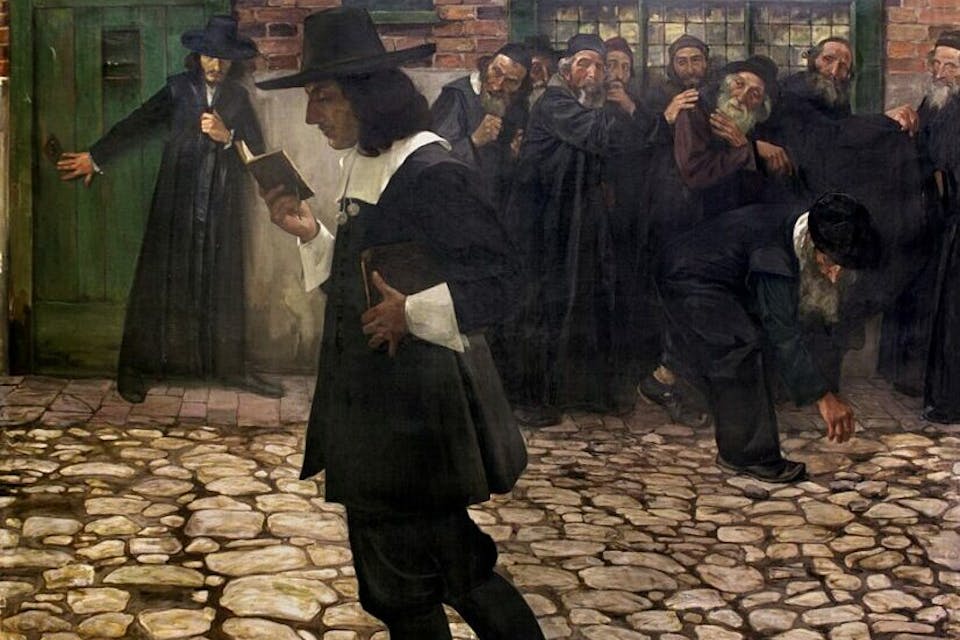
December 23, 2024
Is Baruch Spinoza the Founder of Modern Anti-Semitism?
Blinded by hatred, the Dutch philosopher dressed ancient prejudices in the garb of reason.
In mid-17th-century Amsterdam—a unique haven of tolerance in Europe, known appreciatively as the “Jerusalem of the North”—a twenty-four-year-old Jewish thinker by the name of Baruch Spinoza would be summarily banished from his religious community.
The case against the young philosopher rested on his record of forthright and indisputably heretical contentions. Among them were that (a) the Creator God revered by the Jews had created, in a word, nothing; that (b), to the contrary, God and nature—in the philosopher’s unique semantics, “God, or nature”—were but two words for a single worldly substance; that (c), in blatant contradiction of established religious and philosophical truths, the physical human body and the immortal human soul were not separate entities but, rather, one inseparable corpus; and that (d) humans altogether lacked free will. Concerning the last point, true freedom according to the young Spinoza was to be measured solely by the degree to which humans became aware that both their thoughts and their actions were not free, but instead wholly predetermined.
These ideas, and others like them, would send rapid shockwaves through Western thought, achieving for the young dissident a reputation for sharpness and bravado that would soon spread outward from elitist philosophical precincts to society at large. No less prized was the brand of biblical criticism—built on rational analysis—that the philosopher would propose in his Tractatus Theologico-Politicus (Theological-Political Treatise, 1670).